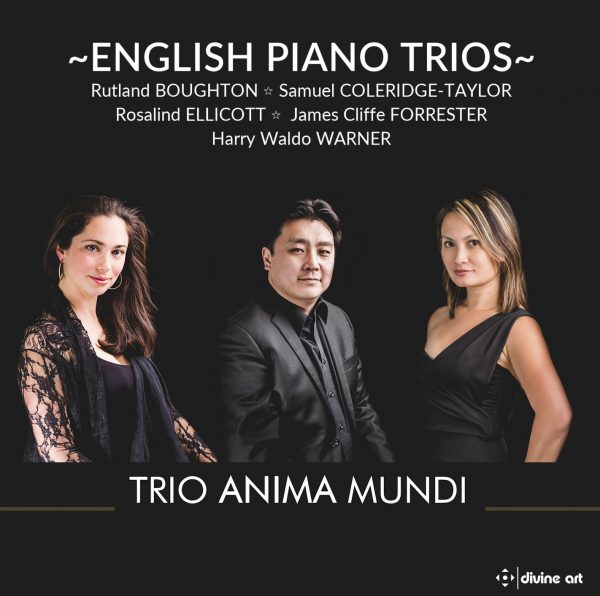Fanfare
Here’s a CD of chamber music well away from the beaten track. In passing I would suggest that there is nothing overtly English-sounding about this chosen repertoire. I should also add that I am no indiscriminate flag-waver for English music. I never feel that I have to loyally “do my bit” for neglected English composers. The Rosalind Ellicott Trio is a thoroughly engaging piece, bursting with confidence, deeply lyrical and passionate. Her name is new to me, but on this evidence she de¬serves to be as widely known as some other contemporaries of Elgar. Her early successes were a Dramatic Overture and a cantata, but she gradually became more preoccupied with chamber music. At 29 minutes her trio is easily the biggest work here. Strangely it is described here as being in F Major, whereas it is clearly G Major. Its effortless lyrical fluency and fine craftsmanship are equally remarkable. Mendelssohn and Schumann are unsurprising influences, while the unhurried Brahmsian expansiveness feels like Ellicott’s natural mode—not in any way inflated.
The better-known Coleridge-Taylor was very highly regarded in his day. When declining a commission from the Three Choirs Festival, Elgar recommended his younger contemporary—“I wish, wish, wish you would ask Coleridge-Taylor to do it… he is far and away the cleverest fellow going amongst the young men.” His Trio in E Minor is attractive, though perhaps more worthy than inspired, cliched at times and not as individual as the Ellicott piece. Nevertheless I was grateful to hear such a pleasing work. One would not guess that the composer was only 18 when he wrote it.
Rutland Boughton (1878-1960) was once popular for his Celtic-inspired opera The Immortal Hour. (Elgar described it as “a work of genius,” while Ethel Smyth, Arthur Bliss, and Vaughan Williams added warmly appreciative remarks.) This Celtic Prelude: The Land of Heart’s Desire dates from 1921, a year before that opera. It is very episodic but nonetheless engaging throughout.
James Cliffe Forrester (1860-1940) won the 1917 Cobbett Competition with his Folk Song Fantasy, a well-made piece if the least remarkable of the rarities on this disc.
The Trio, op. 22, by Harry Waldo Warner (1874-1945) is the second longest piece here at 20 minutes. Warner became viola professor at the Guildhall School of Music, played the viola in the London String Quartet—a position later occupied by William Primrose—and won the Elizabeth Sprague Coolidge Prize with this trio in 1921. It is a compelling, ambitious three-movement work with a certain unpredictability providing some piquancy. Noticeable but intermittent, non-pervasive influences include French and quasi-oriental. How come a composer of such mastery and musical personality is almost unknown? This is a fine piece which demands to be heard again.
Following their debut CD, Romantic Piano Trios, which received some terrific reviews, this Trio Anima Mundi recording again explores very unfamiliar territory. As the group is based in Australia I should imagine that they are relatively unknown in Europe or USA, so once again we are indebted to the CD industry.
Other typos—apparently Forrester was born in 1960 and died in 1940. The Forrester appears as either “Folk-song Phantasy” or “Folk Song Fantasy”; the Boughton is either “The Land of Heart’s Desire” or the incorrect”… Hearts’.” The text itself is compiled by the performers and generally tells us exactly what we need to know. The recorded sound is very well balanced and natural.
These five trios will strike many listeners as surprising and pleasurable discoveries, with the bonus of outstanding performances.
@divineartrecordingsgroup
A First Inversion Company
Registered Office:
176-178 Pontefract Road, Cudworth, Barnsley S72 8BE
+44 1226 596703
Fort Worth, TX 76110
+1.682.233.4978












